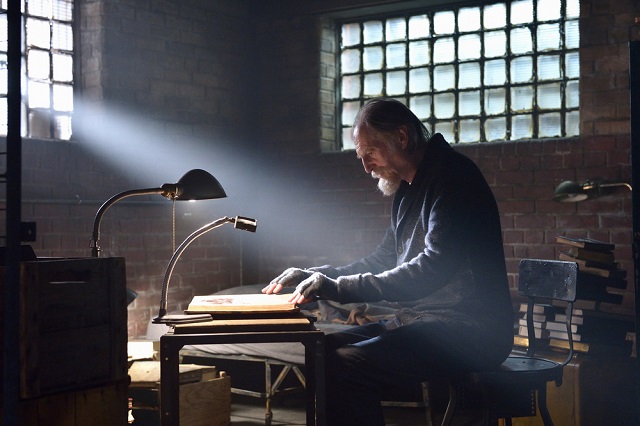
Barash
Written and directed by Michal Vinik
Israel, 2015
There is a lesbian coming of age set up in Barash that strongly smacks of the central duo in Abdellatif Kechiche’s La Vie d’Adèle, paralleling the sexual awakening of a relatively timid high-school student at the hands of a more assertive, experienced female friend, complete with a fairly detailed girl-on-girl sex scene – the pretty, nubile-flesh kind – as well as the central character’s introduction to the world of the lesbian night club scene.
Barash, Michal Vinik’s first feature film, premiered last month at the San Sebastian Film Festival and just won several prizes at the Haifa International Film Festival – Best Screenplay, Best Actress for newcomer Sivan Shimon in the main role as 17 year-old Naama and Best Actor for Dvir Benedek as Gideon, Naama’s father. It follows suburban high-school student Naama as she befriends new student Dana, a feisty self-assured rock chick, who introduces her to recreational drug use, hitchhiking to Tel Aviv nightclubs and lesbian sex. Naama eagerly soaks up the universe of new experiences her school friend has to offer and not surprisingly falls head over heels for Dana, who, similarly to Emma in La Vie d’Adèle ends up dumping Naama, in the process breaking her heart and triggering painful but necessary emotional growth, budding self-awareness, and the rest of the standard fare of coming-of-age dramas.
It is somewhat unsettling that Barash, written and directed by a gay woman, relies on a lot of the same tropes as its predecessor La Vie d’Adèle, the archetypally male-gaze excuse for high school, soft-core pulpy, girly romp that somehow passed off as good film-making a few years ago. Barash’s central duo might as well be the Israeli version of the French heroines – the overly provocative seductress versus the soft, cushiony good girl – both perfectly beautiful inhabitants of a pert-breasted, flat-tummied, pimple-free lesbian utopia. The sex scene between Naama and Dana, stopping short as it does of La Vie d’Adèle’s explicitness, but probably as graphic as it gets for an Israeli film, seems to be the moment when one starts having doubts about the ingenuousness of the filmmaker’s enterprise – the scene rings somewhat like a dare, an exploration of teenage desire that is trying too hard and ends up bland as soon as the first kiss…
On the other hand, the drug initiation sequences are refreshingly, clumsily ironic, and the supporting roles of the jealous school friends are a source of hilarity. In fact, Vinik is excellent at the occasional comic subplots and some of the best sequences are the moments of tongue in cheek comedy – the opening sequence juxtaposing the overwhelming teenage schoolyard ennui with the forced solemnity of Independence Day celebrations is a sincere, self-deprecating take on the demands of modern Israeli identity, as is the poignantly hilarious sequence of the Arabic lesson in which a class of 17-year-olds are struggling with the same basic sentence they’ve probably been rehashing for years. Exaggeration is also what makes the clueless, prejudiced Gideon, played by an excellent Dvir Benedek, probably the most endearing character in Barash. There is a certain comical ruthlessness in the way Vinik portrays Gideon’s over-the-top paranoia and mistrust towards Arabs, and a hint of hope in the generational differences (Naama tries to mitigate her father’s outburst at the police station in the Arab village where her sister Liora (Bar Ben Vakil), who has recently absconded from army service, has likely eloped with her Arab boyfriend). Irit Pashtan is also finely nuanced as Naama’s funny and understandably neurotic mother Michelle, while Liora’s cynicism is more charismatic than girl fatale Dana’s supposed irresistibility. It is these ancillary characters and subplots that make Barash a first film evincing Vinik’s potential for caustic, well-observed characterisation, rather than déjà vu main characters.
Zornitsa Staneva




